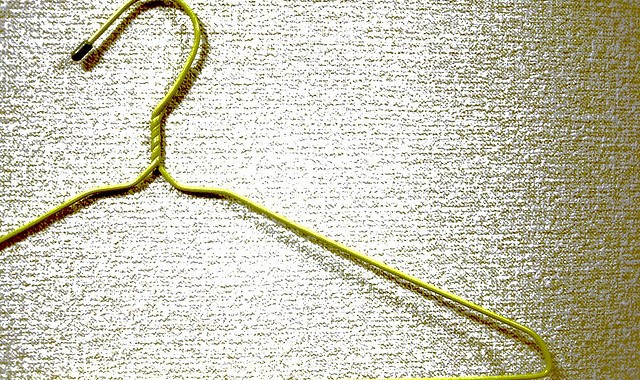(This post was first published here on September 8, 2015.)
Long, long ago there lived an emperor who loved fine clothing and spent all his money on clothes. He was convinced by a cunning tailor to order a suit of clothing made with fabric so special it could not be seen by people who were stupid. Not wanting to seem stupid, the emperor pretended that he, too, could see the cloth, and eagerly awaited his new suit. At long last, the suit was ready, and the emperor put it on (although he still could not see what he was wearing). He then paraded down the street in front of the gathered crowd. All stood, aghast, while the emperor sauntered about in public, naked, but the story of the fabric was widely known, and no one wanted to appear stupid, so no one said a thing. In fact, many praised the suit for its fineness and the emperor for his taste. Finally, a little child loudly said “But the emperor is naked!” and the eyes of the emperor and everyone around him were opened. Ashamed, the naked emperor fled to his palace.
It’s easy to laugh at the story of the Emperor’s New Clothes and at how ridiculously the characters behaved, but I believe that we live out this story every single day. We all have areas in life where we strut around in our invisible suit and no one dares to tell us, or where we can see someone proudly wearing their invisible suit, but we don’t dare tell them. No one wants to appear stupid, so everyone plays along.
We talked about the Johari Window in session 2 to help illustrate the need for feedback. The Johari Window includes a section called “You Know, I Don’t Know.” We all have things that are true about us, but we can’t see. However, other people can see some of those things. We need them to tell us about those things so we can become aware of them too, and increase our “I Know, You Know” section of the Johari Window, something we encourage all great leaders to do.
In session 2, you learned two major reasons that we cannot see some of the aspects of ourselves and our behavior. Remember what those two things were? Blindness and Perspective. Let’s take a minute to unpack each of these.
Blindness
Everyone has blind spots. Physically, each of us has a blind spot in our eyes where the optic nerve exits the eye itself on its way to the brain. You’ve probably never noticed yours because your brain is very good at filling in the missing detail so your vision seems unbroken. But that doesn’t mean the blind spot isn’t there. The exact same thing happens with behavioral blind spots. There are aspects to our behavior that we simply cannot see, and we tend to make sense of these areas by filling in the blanks. My partners have all been unsupportive jerks? The world is full of nasty people. Management keeps passing me over for that promotion? They can’t see talent when it’s right in front of them. The problems that we keep having must be outside of ourselves, because nothing shows up in self-examination. This is the same with our gifts. We often don’t see them as gifts because they seem so easy to us; it takes other people to point them out as something special.
Blindness is one reason we need feedback. In the Emperor’s New Clothes, the emperor was blind to the fact that he was naked, believing instead that he couldn’t see the fabric because he was stupid. Why didn’t any of the adults tell him that he was, in fact, naked? I’m guessing it was fear—fear of looking stupid, of being wrong, whatever, but it often comes down to fear. Another reason we don’t give feedback to someone is that we don’t realize that their behavior is a blind spot for them. Often, we act as though a person’s every action is intentional. We assume that the person has no blind spots, so we back away from sharing that observation, thinking that the person must already be aware of it. Sadly, this is a huge missed opportunity to help someone learn more about how they show up in the world.
Perspective
Just like we all have blind spots, we also all see the world from our own perspective. Remember the fast-walking exercise? Person A walks slower than Person B who walks slower than Person C. According to Person A, Person B is a fast walker. According to Person C, Person B is a slow walker. Which is true? Well…kind of both. It all depends on perspective. Perspective is important to keep in mind when giving and receiving feedback. You may get feedback from one person that you talk too much and feedback from another that you talk too little. It’s not that one person is right and another is wrong; they may simply have different perspectives on how much talking is the “right” amount, and how much you talk as measured against that.
We’ll wrap up feedback in next week’s post when I explore with you why giving feedback is so hard, and how to encourage those around you to give and receive feedback as the gift it is. Until then, start to pay attention to your potential blind spots. Do you see patterns of behavior around you that don’t make sense? Could a blind spot you are unaware of be a potential reason for those patterns? The only way to know is to ask for and graciously receive feedback from others. Something we’ll talk more about next time.
Take care!
Meredith
Image by jewell willett. Used under CC by 2.0 license.

